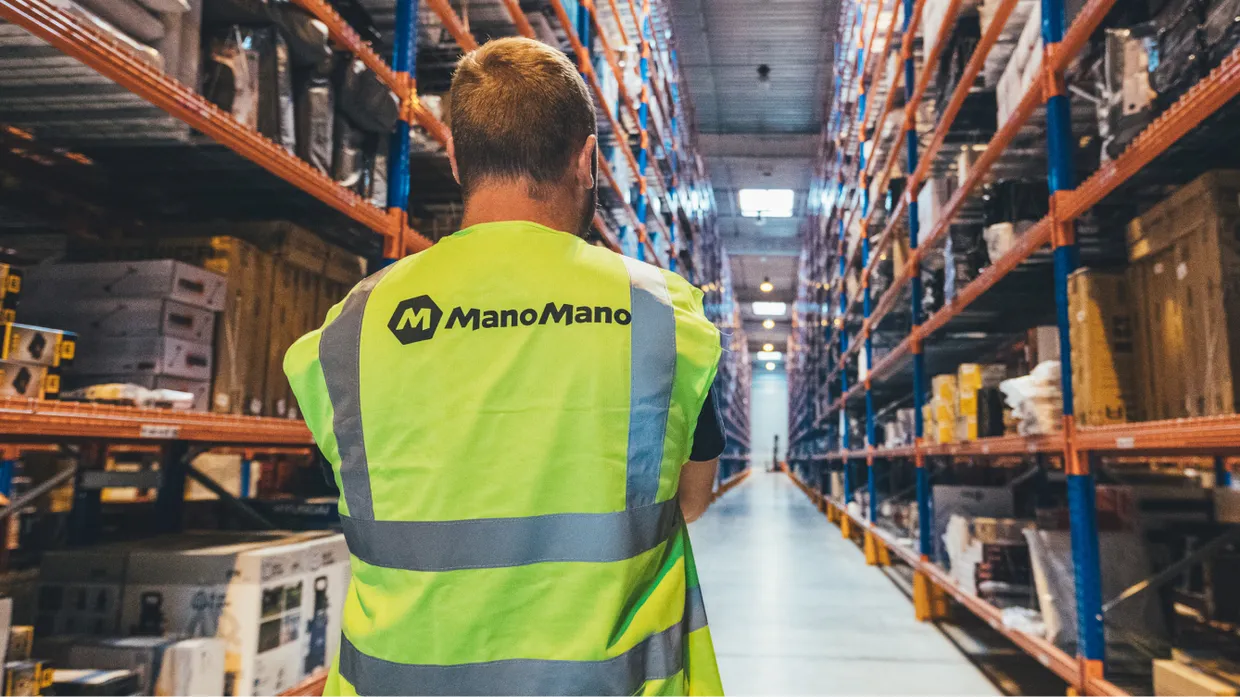- ManoMano needed to “exhaustively” measure its carbon footprint, to meet its own Science-based carbon reduction targets
- Collecting and processing the necessary data were major challenges, due to the extent of ManoMano’s operations: 5,000 sellers, 19,000,000 products, 50,000,000 visits per month
- ManoMano’s previous manual accounting methods were time-consuming and prone to human error
- Sweep allowed ManoMano to automate the calculation of its carbon footprint as far as possible, by modeling the company’s value chain
- Sweep’s data-driven carbon management enables ManoMano to monitor key data sets on a monthly, and quarterly basis. This empowers the team to manage its carbon footprint in close to real-time and take corrective actions where necessary
ManoMano manages carbon data from thousands of sellers with Sweep

Background
ManoMano is Europe’s largest marketplace for products and services in the DIY, gardening and home improvement sector. The company was founded in 2013 in France, and has since expanded into Belgium, Spain, Italy, Germany, and the UK. It now has fifty million visits each month and seven million active users in the EU.
Challenge
ManoMano had set itself carbon reduction targets that were aligned with Science, and therefore with the objectives of the Paris agreement. The company had defined a reduction action plan jointly with its stakeholders.
Against this backdrop, the initial challenge the company set out to tackle was to “exhaustively” measure its carbon footprint.
The main difficulty that ManoMano encountered was in collecting and processing the necessary data.
The company points out that the challenge is all the greater due to ManoMano’s status as a marketplace. The company hosts 5,000 sellers, 19,000,000 products, 50,000,000 visits per month, and has more than 7,000,000 active customers all over Europe. Huge amounts of data are generated by all parts of the value chain, which need to be collected and processed, in order to measure the overall carbon footprint.
Mano Mano’s Senior Lead Carbon Manager Fanny Fleuriot highlights that the principal challenge was in finding the right “compromise” between estimates, real data, and modeling, in order to produce the most accurate picture possible of the carbon footprint as it extends throughout ManoMano’s entire value chain.
Solution
Fanny Fleuriot says that “the major added value of Sweep was really the automation of our calculation rules for modeling our value chain and removing as much as possible the copy-paste errors from dozens of Excel files and hundreds of millions of lines of data”.
This enabled the company to make its calculation rules more reliable, ensuring more accurate outcomes, and vastly minimizing the scope for human error compared to the previous manual calculation method.
ManoMano found great benefit in being able to historicize its hypotheses from one year to the next within the Sweep platform as the team calculated its footprint. The company also found it was better able to calculate and monitor the key performance indicators linked to its reduction trajectory.
Overall, says Fanny Fleuriot, “Sweep really saved us a lot of time, and enabled us to carry out more regular monitoring. Initially, we were producing an annual update of our carbon footprint. Now, on certain key aspects, we are monitoring much more closely, some monthly, some quarterly, and this allows us to monitor our carbon footprint and take corrective actions if necessary”.
Fanny Fleuriot underlines that although collecting and processing all of the necessary data from a value chain as extensive as that of ManoMano can be daunting, it also makes the company a significant force for action:
“We, as a marketplace, are in a position to drive thousands of actors at a time to more sustainable practices . It’s only once we know what our carbon footprint is and where we have an impact, that we can figure out if we are taking the relevant actions”.
If you’d like to join ManoMano in harnessing the power of Sweep’s intuitive, powerful platform, book a demo today



